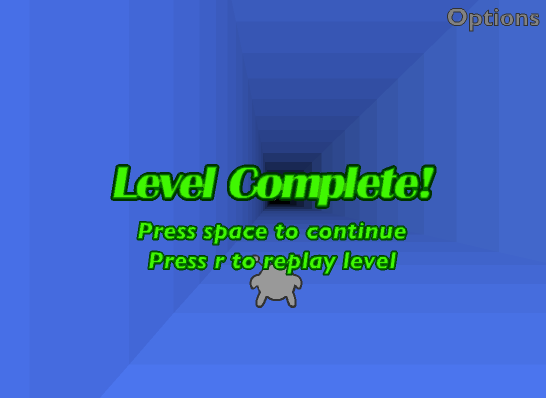The school bell rings. Freedom! Free from the stressful workloads during the weekdays. Freedom to spend time with family and friends… Everything is fine until I remember the homework. I puff out a long, frustrated sigh, and start to work. I bunch up in my room like a hibernating bear, surrounded by endless textbook pages, google classroom assignments, and essays to write.
When teachers assign homework on the weekends, it stresses out students. Like all the students that procrastinate, they’re gonna keep off the homework until the last day due to having a full schedule so that they have to stay awake much longer than they’re supposed to and scramble to finish the homework. Studies from the U.S. National Education Association says, “giving homework over the weekend leads to a buildup of stress during a time when students are meant to relax and unwind. The same is true for giving students homework over the holidays, such as winter break.” But doesn’t stress help you focus? Yes, it does. However, it also makes the outcome of your work much, worse than without stress. I recently watched a TED-Talk about procrastination about a man who had a 90 page thesis to write throughout a year and procrastinated until the last three days, having to write 90 pages in 72 hours and you can already guess the outcome. A study of stress in teenagers shows that 56% of students consider homework as a primary source of stress, while only one percent of the students report that homework was not a stressor. This analysis proves that homework is a major key role in creating stress among our students and children. 43% of the students put tests and good grades to add onto the stress so that it becomes a competition of whoever has the better grades. Schools in Finland have shorter school days and little to none homework, and instead of competition between the grades on the standardized tests (which don’t even exist) and grades, there’s cooperation from helping each other out with each other’s problems and struggles. This makes the students less stressful and that can help with memory, relationships, a healthier heart, a better outlook on life, and more benefits. A focus group of students reflected that a majority of them said that their homework load led to sleep deprivation, among other health problems. The researchers concluded that the massive amount of homework impacted the health of the teenagers through headaches, exhaustion, sleep deprivation, weight loss, and stomach problems. Weekends aren’t just for de-stressing, it’s also for relaxing and spending time with loved ones.
We all know adults who work usually get the weekends off to relax, but it’s not the same for students. Adults get time off to spend with their family only to find out that their kids are up in their rooms or at the library doing homework or studying. They may not be working in school, but they would be working in their rooms or at the library. I believe that weekends should be a time to relax and spend the time with friends and family. Kids should be kids, spending their time being filled with creativity and wonder, not moping with frustration around because of their homework. Alfie Kohn, author of “The Homework Myth”, told the Huffington Post, “It’s one thing to say we are wasting kids’ time and straining parent-kid relationships, but what’s unforgivable is if homework is damaging our kids’ interest in learning, undermining their curiosity.” The amount of homework schools give is too much, and our relationships with their own families are being damaged due to the lack of time spent together! The piles of homework distract students from their real lives – lives of creativity, fun, adventure. Homework sucks away all of that. Survey data shows that the students are “not meeting their developmental needs or cultivating other critical life skills,” according to the researchers. Due to the heaviness of the homework load, students are forced to drop activities like sports, time with friends or family, and pursue hobbies they enjoy. In high performing schools, too much homework can reduce their times to foster skills of personal responsibilities, the analysts concluded. “Young people are spending more time alone, which means less time for family and few opportunities to engage in their communities.” This says that their time focused on homework, can be turned and used to spend time with friends and family and their personal hobbies. Weekends are also to unwind and breathe a bit.
Weekends are not just for fun, it’s also to slow down and take a break from schoolwork and breathe. It gives us more time to sleep and that alone can influence our entire day or even the entire week. The time assures students that there’s time and no need to rush all the time. In my school, we have C.U.B. weekends which stands for Catch Up and Breathe, it happens every other week. As a student, I can tell you that I look forward to it. Every other Friday, I start to pack my backpack with binders, folders, books, and I complain about the homework, but I realize with a sense of relief, that it was a C.U.B. weekend and I happily put everything back. I could finally spend some time without schoolwork. I’m not saying schoolwork is bad, I’m just saying that to have an excessive amount is bad. Kids in Finland, the country with the best schools and education system, have NO homework, and they use their free time to use their imagination, to have a sense of wonder and creativity. With long breaks students are given time to relax and take in all the information given to them. In the US, we have class after class. Only sometimes do we go out for a break after lunch, and it’s usually not longer than 5 minutes. The schools in Finland don’t just care about the academics, they care about the entire well being. They care about what they do in their free time, about their habits etc. Of course, you can argue that homework is to remember what you learned in school that day, but it really doesn’t help. In Finland kids don’t have homework altogether and they still have the best education system in the world. Do you want to know why? Because they want their students to go out into the real world and explore without stress or anything like that. This makes them remember things a lot easier. Have you ever had to do something under stress and you couldn’t do it, but you could do it when you’re practicing or reciting? This is pretty much the same thing.
This goes the same for a lack of sleep. If teenagers sleep for less than 8.5 hours of sleep (the recommended amount of sleep for a teenager), they can have some major side effects in their heads throughout the day. Lightheadedness, tiredness, being unaware of the current situation, dizziness all results from sleep deprivation. Studies prove that sleep deprivation can influence your ability to pay attention, creativity, abstract thinking, decision making, remembering long term memories, and overall mood and motivation. All of these are required during school and without these, you wouldn’t be able to function the way humans are supposed to. Although sleep is one of the highest priorities for learning, it’s the thing that is most lacking in students. One study showed that less than 15% of the teenagers get at least 8.5 hours of sleep each night. To balance out the lack of sleep, teens sleep a lot more on the weekends which takes even less time from doing homework. A survey given to 1,000 k-12 teachers has shown that students are now spending upwards of up to 17.5 hours a week on homework if they typically have 5 classes with different teachers. This is around 3.5 hours a 5 day week for each teacher and 2.5 hours in a full week in high school, in middle school, it’s about 3.2 hours a 5 day week and 2.3 a full week, and in elementary school, 2.9 hours a 5 day week and a bit less than 2.1 hours a day in a full week. By comparison, a 2011 study from the National Center for Education Statistics found that in 1994, only 39% of 17 year olds said that they did at least an hour of homework each day. Also, the National PTA recommends that there should be 10-20 minutes of homework per night in the first grade, and add an additional 10 minutes per grade level. That means a senior in high school, should be doing roughly 120 minutes (2 hours) of homework a day, but may do more depending on certain courses they take.
Due to this abundance of stress and lack of sleep, socializing, exercising and extra curricular activities. Homework is the number one priority in students’ minds and can really mess up the body and habits. Teachers can relieve the students and ease their studies by giving time in class to do work, give less homework and stick to the recommended amount, or not to give homework on the weekends. Although students are only 20% of our population, they are 100% of our future.



Hi you have a greate site It was very easy to post good job